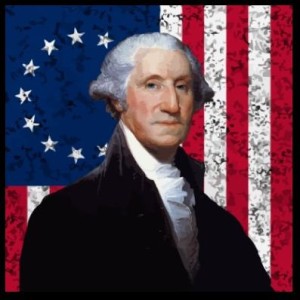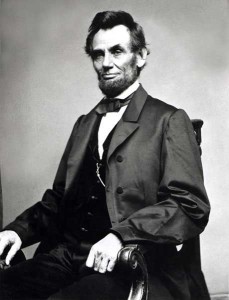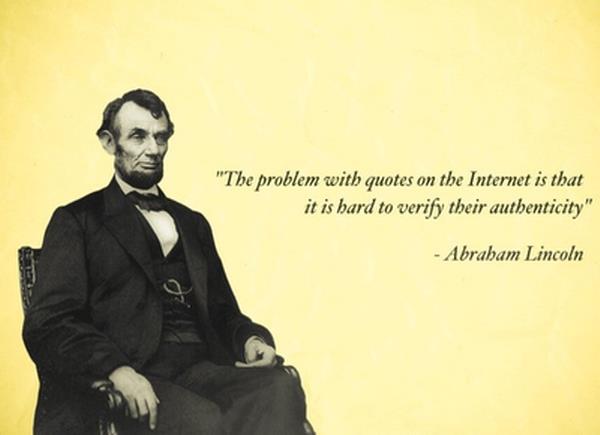So, it’s Presidents’ Day. It didn’t used to exist. In my younger years, we had instead separate days to honor George Washington and Abraham Lincoln specifically, on their respective February birthdays. I’m not even all that sure what the current Presidents’ Day is supposed to focus on. People from my generation probably still consider it a commemoration of Washington and Lincoln, but what about the new generation? Is the intent to honor anyone and everyone who ever served as president? Frankly, I would have a hard time getting excited about praising the achievements of James Buchanan, as just one example.
I would prefer to go back to what we did previously. Most Americans have a sense that there is a world of difference in quality between Washington and Lincoln on one side and Buchanan and Franklin Pierce on the other. As a historian, my extensive reading in American history has provided me with a firmer basis than most on the merits of the various presidents. My esteem for Washington and Lincoln has only grown after reading and studying them more closely.
George Washington was the indispensable man for our young nation. He held an army together when the attempt at independence suffered from one defeat after another. He modeled servant leadership by resigning his commission at the end of the war to return to private life. At one point, when pressed by some to become America’s king, he resoundingly rejected the offer. That’s not what we’ve been fighting for, he replied.
His steadiness as president got us through a tumultuous first decade under our new Constitution. Captaining the ship of state past the shoals of influence from the French Revolution and the fracturing of the political leaders into two parties, he was the one man all could look to for assurance and guidance. Thomas Jefferson and Alexander Hamilton, the titular heads of the emerging parties, both pleaded with him to run for a second term. They knew his stature was sorely needed to keep the nation on track and avoid a disastrous split.
Washington’s Farewell Address was wise, particularly the inclusion of the significance of religious faith as the cornerstone of our society and government. Without that, he said, we would have no firm basis for morality. Education, he counseled, was not the answer; only religious belief would suffice. And for Washington and his generation, he wasn’t talking about some vague concept of God, but Christianity.
I’ve changed my views on Abraham Lincoln over the years. Whereas I once was ambivalent about him, with a hint of concern that he might have been at least a mini-tyrant, I have now shifted over to an ardent admirer of his heart, his logic, and his quest for a meaningful Christian faith. His path to faith was filled with cynicism, agnosticism, and fatalism. Yet, from what I surmise in all my reading, the struggle in his own soul over the loss of two of his children, over the institution of slavery, and over the future of the Union, reshaped his original skepticism. The nearly overwhelming burden of the Civil War drove him back to the God of his childhood. His speeches and personal letters both reveal a deep and growing confidence in the truth of the Christian faith.
He came along at a pivotal moment, much as Washington did. I tend to think that no one of his generation could have led with the same degree of humility and ultimate wisdom as he did. As the war neared its end, his mind and heart were fixed on the issue of reconciliation. He sought to heal the nation of its self-inflicted wounds. His assassination was one of the most tragic events in American history, yet it left us with the legacy of a man we ought to admire for his character and leadership.
Legends have grown up around both men. No, Washington never chopped down that cherry tree. There are a multitude of sayings attributed to Lincoln that he never really said. Of course, he himself warned us about that:
Yes, his wisdom continues to reach out to us.
Incidentally, another president born in February was Ronald Reagan. Regular readers of this blog already know what I think of him. I have a proposal: instead of this amorphous Presidents’ Day that is too vague to be meaningful, how about we have three separate commemorations for arguably the three best presidents in American history: George Washington, Abraham Lincoln, and Ronald Reagan. All three days could be valuable for teaching the new generations what genuine character in government looks like.



